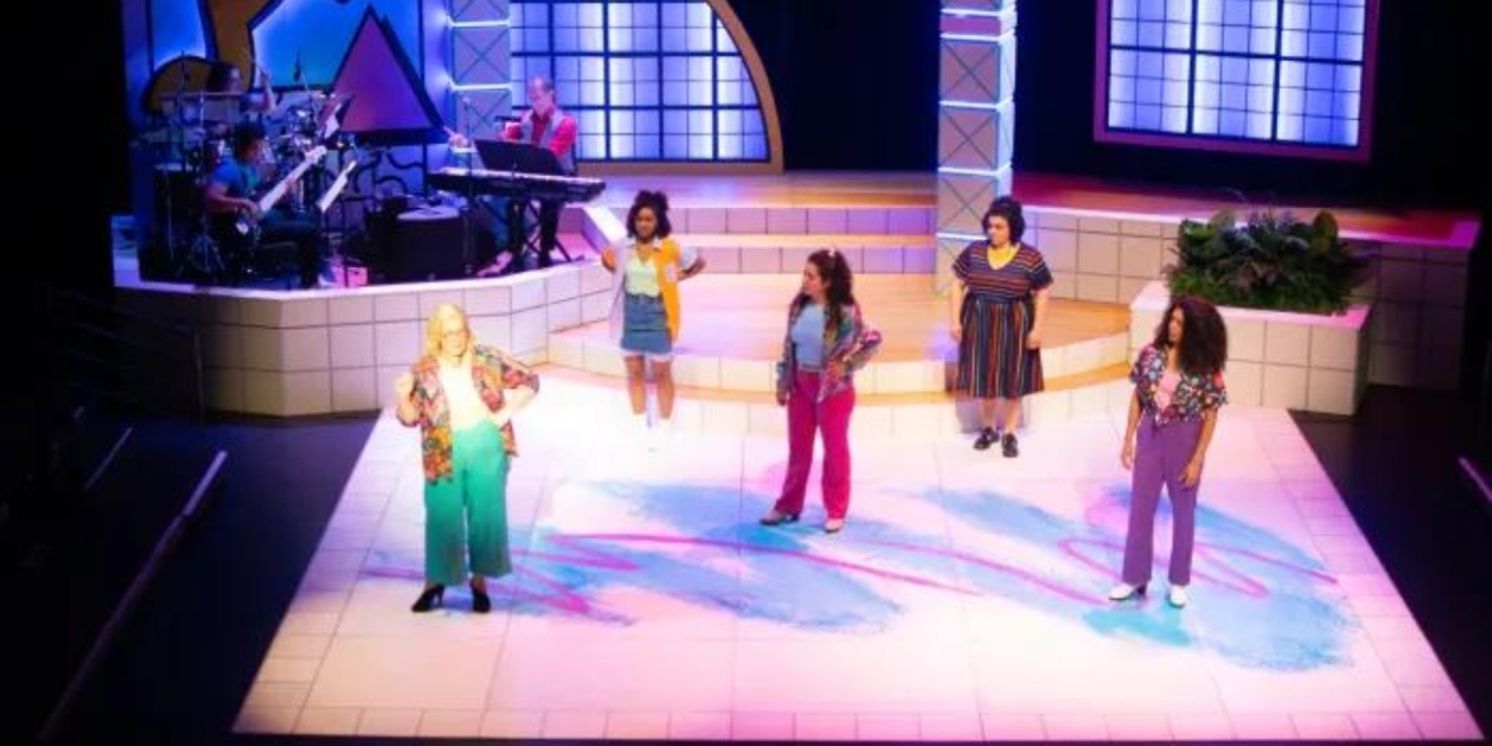Review: A... MY NAME IS STILL ALICE Brings Back the 90s at Front Porch Theatricals
Front Porch opens its season with this little-seen gem.

By this point in time, it doesn't really matter what Front Porch produces, does it? You see the name, and that's a good enough endorsement of whatever is going to be onstage. Never has that selling power and reputation been proven more strongly than now. During the preshow speech before opening night of Front Porch's A... My Name Is Still Alice, producer Nancy Zionts stated that not only had local audiences likely never seen the show, it's likely no one ever had. The musical revue and sketch show, conceived by Joan Micklin Silver and Julianne Boyd, has apparently never been staged as a "show," only as a cabaret of sketches and songs in concert setting. Here, directed by Nancy McNulty McGeever and choreographed by Ashley Harmon, there is no doubt whatsoever: this is a SHOW.
Our setting, in McNulty McGeever's vision of the show, is a shopping mall in the early-to-mid 1990s. Much like the carnival midway in Assassins, this is a location we will branch out of but continually return to again and again. Scenic designer Johmichael Bohach has gone to town with nineties colors and cliches- note the Jazz Cup image on the floor- but anyone from the greater Pittsburgh area will recognize Westmoreland Mall as a very likely source of inspiration for the fictitious mall's look. In this cosmopolitan setting, five women (Natalie Hatcher, Kristiann Menotiades, Delilah Picart, Saige Smith and Becki Toth) assume a variety of roles as various characters, parodies and archetypal figures, exploring the status of Woman, and women, in the nineties.
I was surprised by how little of the show felt dated and "topical." Sure, there were some sketches clearly of the moment, such as a Jenny Craig sketch or a spoof on Madonna's conical-bra period. But some of the seemingly "dated" material, like a number of references to Clarence Thomas and Anita Hill... well, for better or for worse, some topics never go out of style, do they? (While the material is presented 99% as written throughout, a few little goosings like a throwaway mention of then-minor Capitol Hill politician Bret Kavanaugh have been inserted tastefully here and there.) The overall impression is less of an on-the-nose, of-its-time topical revue (the kind Frank and friends wrote in Merrily We Roll Along), and more of the greatest all-female episode of Saturday Night Live from the nineties.
Googling all the authors who contributed to this show will blow you away: legendary playwrights like Lynn Nottage and top-tier composers like Stephen Schwartz, Michael John LaChiusa and Craig Carnelia are all on the bill of fare here. These sketches and songs are written as utterly disconnected pieces, but McNulty McGeever has reordered and restructured many of them to flow into one another within the mall's internal logic.
All five of the women have incredible moments to shine, with Natalie Hatcher's "bus woman" monologue and Saige Smith's journey from idealistic child to burnt-out homeless woman in the song "Wheels" standing out as examples of the show's more serious, dramatic side. But if this revue has a true MVP, it's Becki Toth. Toth brings big SNL energy, channeling that 1990s comedienne energy that Ana Gasteyer, Molly Shannon and Cheri Oteri exemplified. Her casual, no-effort-whatsoever faux-impersonations of Madonna, Queen Elizabeth and Pope John Paul II are the sort of joke that is funny the first time and hilarious by the third; as a contrast, Toth then puts on a surprisingly accurate and recognizable Ann Dowd impression (one of the show's few winking anachronisms) for a vaguely Handmaid's Tale sketch. The show's whole-cast comic highlight is ironically one of its more dated moments: a noir parody, "Women Behind Desks" about the prison-like conditions in middle management hell. Unfortunately, it's not dated because women have broken the glass ceiling... it's dated because the position of copy clerk has been mostly fazed out by the digital revolution.
With Douglas Levine at the piano as music director, and acting as the "token male" in a few of the sketches, the small jazz combo orchestra sounds much fuller and complements the five person cast (plus two swings who cameo in the final scene) with aplomb. If you thought for even a moment that an obscure topical sketch cabaret from the 1990s would seem boring, irrelevant, or even hacky, leave those expectations at the door. This is Front Porch, people; they wouldn't let us down.
Reader Reviews

Videos

